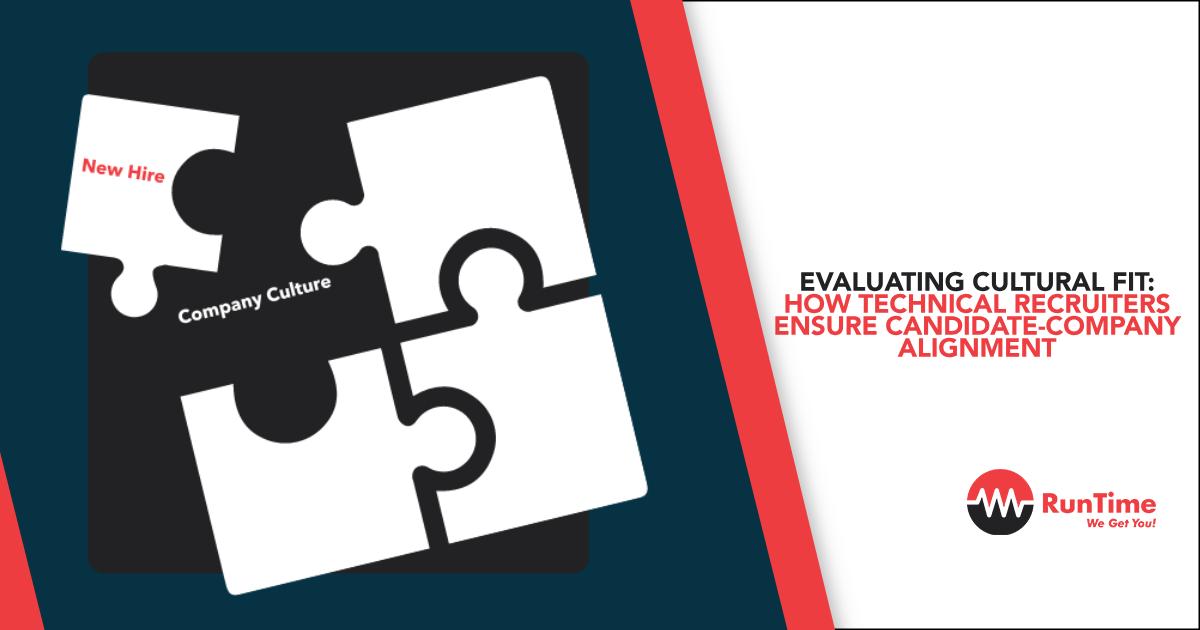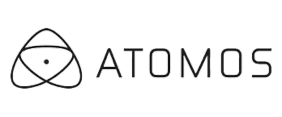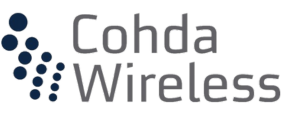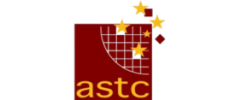In technical recruitment, finding candidates with the right skills and qualifications is essential. However, the importance of assessing cultural fit cannot be overlooked. A candidate who aligns well with the company’s values, work ethic, and communication style is more likely to contribute positively to the organization’s success. A poor cultural fit, on the other hand, can negatively affect team dynamics, productivity, and employee retention.
As the tech industry continues to grow, it is crucial for recruiters to pay attention to both the technical skills and the cultural fit of potential candidates. By doing so, they can ensure a smoother integration of new hires into the company, resulting in improved overall performance and a stronger, more cohesive team.
Understanding Cultural Fit
Definition and Significance of Cultural Fit
At its core, cultural fit represents the alignment between an employee’s values, beliefs, and behaviors, and those of the company they work for. It’s a critical factor in determining how well an individual will integrate into their workplace and contribute to its success. A strong cultural fit can lead to increased job satisfaction, better collaboration, and higher productivity, while a poor fit can result in conflicts, decreased motivation, and lower overall performance.
However, it’s crucial to note that cultural fit doesn’t mean hiring people who are all the same. Instead, it’s about finding individuals who bring diverse perspectives and experiences, yet still resonate with the company’s values and principles. This diversity fosters innovation, creativity, and growth, both for the employees and the organization as a whole.
The Role of Cultural Fit in Employee Satisfaction, Retention, and Productivity
Cultural fit plays a significant role in various aspects of an employee’s experience within a company. When an individual’s values and beliefs align with the organization’s, they are more likely to be satisfied with their job, committed to their work, and motivated to perform at their best. This satisfaction and engagement, in turn, lead to higher productivity and better results for the company.
Moreover, employees who fit well within the company culture are more likely to remain with the organization for a longer period. This reduced turnover saves the company resources that would have been spent on hiring and training new employees, and it also contributes to a more stable and cohesive team. In contrast, a poor cultural fit can lead to increased turnover, higher recruitment costs, and a disruptive work environment.
Key Components of Culture Fit
There are three main components that contribute to a strong cultural fit:
- Shared Values
Values are the foundation of an organization’s culture, shaping its mission, vision, and policies. When employees share the same values as their company, they are more likely to be engaged, motivated, and committed to the organization’s success.
2. Work Styles
Work styles refer to how individuals approach tasks, manage time, and interact with colleagues. A strong culture fit means employees’ work styles complement each other and align with the company’s expectations, leading to increased productivity and better teamwork.
3. Communication and Collaboration
Effective communication and collaboration are essential for a successful work environment. When employees have compatible communication styles and are able to collaborate effectively, it leads to better problem-solving, innovation, and overall performance.
Benefits of a Strong Culture Fit for Companies and Candidates
A strong culture fit has numerous benefits for both companies and candidates. For companies, it leads to increased employee engagement, productivity, and retention rates. Employees who fit well with the company culture are more likely to stay with the organization, reducing turnover costs and contributing to long-term success.
For candidates, finding a job that aligns with their values, work style, and personality leads to higher job satisfaction, motivation, and personal growth. A strong culture fit ensures that employees feel valued, supported, and engaged in their work, contributing to their overall happiness and well-being.
The Impact of Poor Cultural Fit on Team Dynamics and Company Success
When there is a misalignment between an employee’s values and the company’s culture, the consequences can be far-reaching and detrimental. Poor cultural fit can lead to conflicts within the team, decreased morale, and a lack of cooperation. These negative effects can spill over into other areas of the organization, impacting overall productivity and efficiency.
Additionally, poor cultural fit can tarnish a company’s reputation, both internally and externally. Employees who are unhappy with the work environment may share their dissatisfaction with others, potentially discouraging future candidates from joining the company. This negative perception can also affect customer relations and partnerships, ultimately hindering the company’s success.
To avoid these issues, it’s essential for recruiters to assess cultural fit during the hiring process, ensuring that candidates not only possess the required technical skills but also align with the company’s values and ways of working. By doing so, they can help create a positive and productive work environment that fosters success and growth for both employees and the organization.
Balancing Job Fit and Cultural Fit for Successful Hiring
Finding the ideal candidate for a technical role involves striking the right balance between job fit and cultural fit. While job fit focuses on the candidate’s ability to perform the required tasks and their technical expertise, cultural fit is about how well they align with the company’s values, beliefs, and ways of working.
Both aspects are equally important in the recruitment process. A candidate with exceptional technical skills but a poor cultural fit can create friction within the team and hinder productivity. Conversely, a candidate with a great cultural fit but lacking the necessary technical skills may struggle to perform their duties effectively.
In order to make successful hires, recruiters must carefully assess both job fit and cultural fit during the selection process. This approach will help identify candidates who not only have the right technical skills but also share the company’s values and can contribute to a positive work environment.
RunTime Recruitment’s Approach to Cultural Fit Evaluation
RunTime Recruitment employs a comprehensive approach to evaluate culture fit, ensuring the best possible match between engineering candidates and client companies. This process involves an in-depth assessment of both candidates and companies, as well as a thorough analysis of compatibility.
Comprehensive Candidate Assessment
RunTime Recruitment’s evaluation process includes the following steps:
1. Technical Skills Evaluation
Technical skills are essential for engineering roles. RunTime Recruitment assesses each candidate’s skills and experience to ensure they possess the required expertise for the position.
2. Soft Skills Assessment
Soft skills, such as communication, problem-solving, and teamwork, are vital for success in any work environment. RunTime Recruitment evaluates candidates’ soft skills to ensure they can effectively collaborate with colleagues and contribute to the company’s success.
3. Attitude and Motivation Analysis
A candidate’s attitude and motivation can greatly impact their job satisfaction and performance. RunTime Recruitment analyzes candidates’ motivations and attitudes to ensure they align with the company’s culture and values.
In-depth Understanding of Client Company Culture
RunTime Recruitment takes the time to understand the unique culture of each client company, considering aspects such as:
1. Company Values and Mission
Understanding the company’s values and mission helps RunTime Recruitment identify candidates who share the same beliefs and goals, ensuring a strong culture fit.
2. Work Environment and Team Dynamics
RunTime Recruitment considers the work environment and team dynamics of each client company, ensuring candidates can effectively collaborate and thrive within the organization.
3. Leadership Style and Management Philosophy
By understanding the leadership style and management philosophy of client companies, RunTime Recruitment can identify candidates who will succeed under the company’s management approach.
Matching Candidates with Company Culture
RunTime Recruitment’s process for matching candidates with company culture includes:
1. Compatibility Analysis
RunTime Recruitment analyzes the compatibility between candidates and client companies, considering factors such as shared values, work styles, and communication preferences.
2. Customized Interview Questions
RunTime Recruitment creates customized interview questions to assess candidates’ culture fit, helping to identify potential alignment issues early in the process.
3. Collaborative Decision-Making with Clients
RunTime Recruitment works closely with clients throughout the hiring process, involving them in decision-making and ensuring their input is considered when evaluating candidates’ culture fit.
Leveraging Technical Assessments and Challenges
Identifying Cultural Fit through Technical Interviews and Coding Challenges
Technical interviews and coding challenges can provide valuable insights into a candidate’s cultural fit, in addition to assessing their technical skills. By observing how candidates approach problems, communicate their thought processes, and work under pressure, recruiters can gain a better understanding of their work style, problem-solving abilities, and overall compatibility with the company’s culture.
For example, during a coding challenge, pay attention to:
- How the candidate explains their approach to solving the problem.
- Their ability to adapt when faced with unexpected challenges or changes in requirements.
- How they handle feedback and collaborate with others, if applicable.
These observations can help identify candidates who demonstrate strong cultural fit qualities, such as adaptability, communication, and teamwork.
Assessing Collaboration, Communication, and Problem-Solving Skills
When evaluating a candidate’s cultural fit, it’s essential to assess their collaboration, communication, and problem-solving skills. These competencies are crucial in determining how well they will integrate into the team and contribute to a positive work environment.
To assess these skills, consider the following strategies:
- Incorporate group exercises or pair programming challenges during the interview process to observe how candidates collaborate with others.
- Ask candidates to explain their thought process while solving a problem, highlighting their communication style and ability to articulate complex concepts.
- Present candidates with hypothetical scenarios that require creative problem-solving, and observe their approach to finding a solution.
By focusing on these essential skills during the assessment process, recruiters can identify candidates who not only possess the required technical expertise but also demonstrate strong cultural fit qualities, ultimately contributing to a successful, collaborative, and productive team.
Tips for Engineering Candidates to Assess Culture Fit
As an engineering candidate, it is essential to evaluate culture fit when considering job opportunities. Ensuring a strong culture fit can lead to higher job satisfaction, motivation, and personal growth. Here are some tips to help candidates assess culture fit:
Researching the Company
Begin by researching the company’s mission, vision, values, and work environment. This information can be found on the company’s website, social media channels, and various employer review platforms. Understanding the company’s culture will help determine if it aligns with your own values and goals.
Engaging in Open Conversations During Interviews
During interviews, engage in open and honest conversations with the interviewer. Ask questions about the company’s culture, team dynamics, and work environment. This will provide valuable insights into whether the company is the right fit for you.
Evaluating Personal Values, Work Preferences, and Career Goals
Take the time to evaluate your own values, work preferences, and career goals. Consider whether the company’s culture aligns with these factors. A strong culture fit occurs when there is alignment between your personal values and the company’s culture.
Seeking Feedback from Current and Former Employees
Reach out to current and former employees for insights into the company’s culture. They can provide valuable information about the work environment, team dynamics, and overall employee experience. This will help you make an informed decision about whether the company is the right fit for you.
Tips for Companies to Ensure Culture Fit with Engineering Candidates
Ensuring a strong culture fit with engineering candidates is essential for companies to achieve long-term success, employee engagement, and retention. Here are some tips for companies to ensure culture fit with engineering candidates:
Clearly Communicating Company Values and Culture
Make sure to clearly communicate your company’s values, mission, and culture to potential candidates. This can be done through your website, job postings, social media, and during the interview process. Providing candidates with a clear understanding of your company culture helps them determine if they are a good fit for your organization.
Involving Team Members in the Recruitment Process
Involve team members in the recruitment process to ensure potential candidates are a good fit for your company’s culture. Team members can provide valuable insights into the work environment, team dynamics, and overall culture of the organization.
Creating a Positive Candidate Experience
Create a positive candidate experience by being transparent, responsive, and respectful during the recruitment process. This will help candidates feel valued and engaged, increasing the likelihood of finding candidates who align with your company’s culture.
Providing Opportunities for Candidates to Experience the Company Culture Firsthand
Consider providing opportunities for candidates to experience your company culture firsthand. This can be done through job shadowing, attending company events, or participating in team meetings. Experiencing the company culture directly will help candidates determine if they are a good fit for your organization.
Conclusion
In conclusion, technical recruiters play a crucial role in ensuring candidate-company alignment by evaluating culture fit. Prioritizing culture fit in technical recruitment brings numerous benefits, including increased employee engagement, productivity, and retention.
RunTime Recruitment, with its professional, knowledgeable, and friendly approach, is committed to supporting clients and candidates in finding the perfect match. Let our professional, knowledgeable, and friendly team help you find the right fit for your organization’s needs. Learn more about our services and how we can support you in achieving long-term success.









